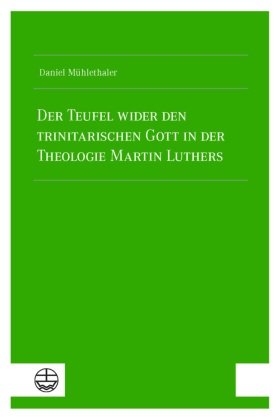
Der Teufel wider den trinitarischen Gott in der Theologie Martin Luthers
| Verlag | Evangelische Verlagsanstalt |
| Auflage | 2024 |
| Seiten | 244 |
| Format | 15,6 x 1,3 x 23,2 cm |
| Großformatiges Paperback. Klappenbroschur | |
| Gewicht | 375 g |
| ISBN-10 | 3374076661 |
| ISBN-13 | 9783374076666 |
| Bestell-Nr | 37407666A |
Bei Luther tritt der Teufel überall da auf, wo Gott am Werk ist. Darin ist die Leitthese der Dissertation erfasst. Luthers Bekenntnis von 1528 bildet das Rückgrat der Arbeit, sodass trinitarische Struktur und christozentrischer Ansatz sich stimmig ergänzen.
Material also hat es der Teufel bei Luther mit dem Gott zu tun, der nicht bei sich selbst bleibt. Was das bedeutet, wird rekonstruktiv-theologiegeschichtlich ausgebreitet und anschließend systematisch-theologisch verwertet. Denn gerade weil Luther keine Scheu davor zeigte, Gott und Teufel bis an die Grenzen der theologischen Redlichkeit zu verbinden, rütteln seine Überlegungen noch heute an der solidesten Gotteslehre.
[The devil against the Trinitarian God in Martin Luther's theology]
For Luther, the devil appears wherever God is at work. This contains the main thesis of the dissertation. Luther's confession of 1528 forms the backbone of the work, so that the Trinitarian structure and Christocentric approach c omplement each other harmoniously.
In Luther's case the devil has to do with the God who doesn't stay with himself. What this means is explained in a reconstructive and theological-historical manner and then systematically and theologically evaluated. Precisely because Luther showed no fear of connecting God and the devil to the limits of theological honesty, his reflections still today undermine the most solid doctrine of God.
